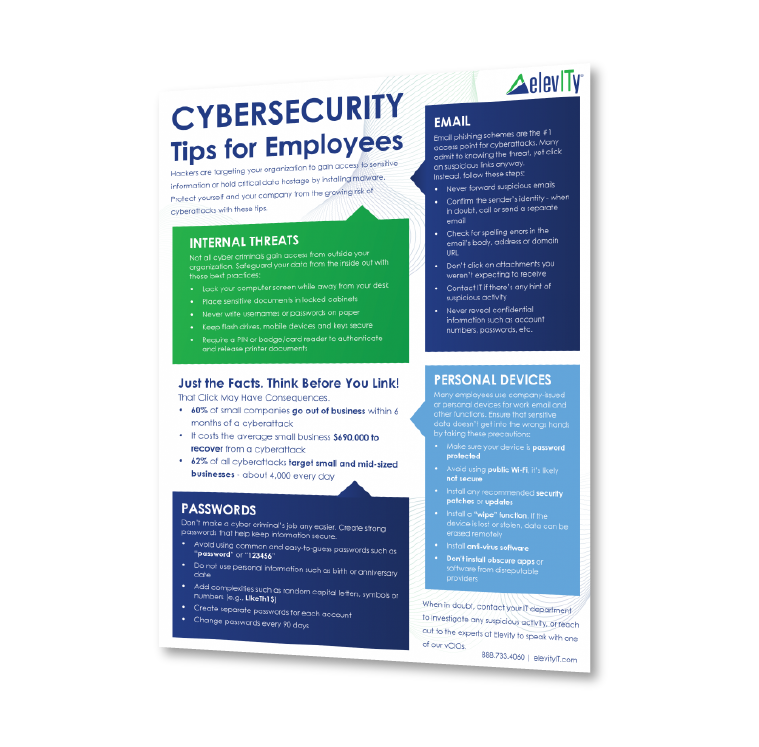More than 80% of organizations plan to let employees keep working from home atleast some of the time even after COVID-19 is no longer a threat. Since remote work will become a more permanent situation for many people, it’s important to ensure your home network can support you.
Here's my advice on how to optimize your home network for greater connectivity and security.
Help Your Home Network Be All It Can Be
Reliable, strong performing internet is essential for people working from home and kids doing online learning. But many home networks may not be up to the challenge of safely supporting multiple devices online for extended periods.
I’ve noticed that people aren’t really appreciating the fact that you can’t use a 7-year-old wifi router in a house with 3 streaming TVs, 2 laptops, and another 3 tablets that all expect service at the same time.
Taking a good look at your ISP, router, and devices can help you improve your internet speed, cybersecurity, and overall productivity at home.
Tip 1: Get an Internet Plan That Actually Fits Your Needs
You might not realize how much bandwidth you’re burning through. Broadband gives you something like 200 Mbps down, 10 Mbps up. That’s really good for an average household’s needs pre-COVID. But it’s not the greatest when you’ve got 2 grownups and maybe 2 kids all trying to do distance learning and working from home and everyone’s on a Teams meeting. That upload bandwidth is going to get consumed pretty quickly.
Review options from your ISP. As you do, make sure you’re considering what your internet needs really are. You don’t want your bandwidth to be a bottleneck. Is there a better plan available from your ISP? Would it make more sense to move to a different ISP?
Tip 2: Update Your Router
As the traffic control center of your home network, your router can help you get what you’re paying for from your ISP – as long as it’s not too old. If you haven’t replaced your router in the last 4 or 5 years, now’s the time to do so.
Old routers weren’t designed to move the level of internet traffic that today’s homes demand. Many also can’t operate at the speeds that they need to for all of your devices to work.
There are a lot of new router solutions out there you might not be aware of. Whole home wifi systems are comparable in price to a single router and they blanket your house with wifi. I use a whole home wifi system myself.
This solution is nice because it comes with new features like parental controls that let you shut off wifi to specific devices on a schedule. So from 5-7 p.m. every night, my router shuts off wifi to my kids’ phones so we can have dinner together. The expanded features of newer routers not only help you keep the internet flowing smoothly, but also benefit your home and family life.
Yes, buying a new router is a bit of an investment, but it’s all part of looking at your network’s core components and making sure everything is up-to-date and working well together.
Tip 3: Keep Your Devices Current
One Christmas, I gave my son an old iPad from 2012 so he could stream Hulu on it. He was thrilled. But when we went to install Hulu, we discovered that Hulu wouldn’t run on this iPad because its iOS version was too outdated. And because the iPad was so old, it couldn’t be updated to the latest iOS.
Keeping your devices current is smart not only for maintaining their functionality and compatibility with the apps you need, but also for ensuring you’re getting the latest security updates and patches.
Take Windows 7 for example. If you’re still running Windows 7 on your home laptop, it may function alright, but you’re not getting security updates from Microsoft. You’re putting yourself, your whole home, and your ability to perform your job at risk because of this outdated device. And because all of your computers, tablets, and mobile devices are interconnected, if any one of them falls way out of spec, it can tilt your whole environment out of whack.
So you want to keep your technology current as best you can. At the very least, ensure all of your devices can run the latest operating system from the manufacturer. And don’t forget to keep them patched and updated.








%20cropped.jpg)




